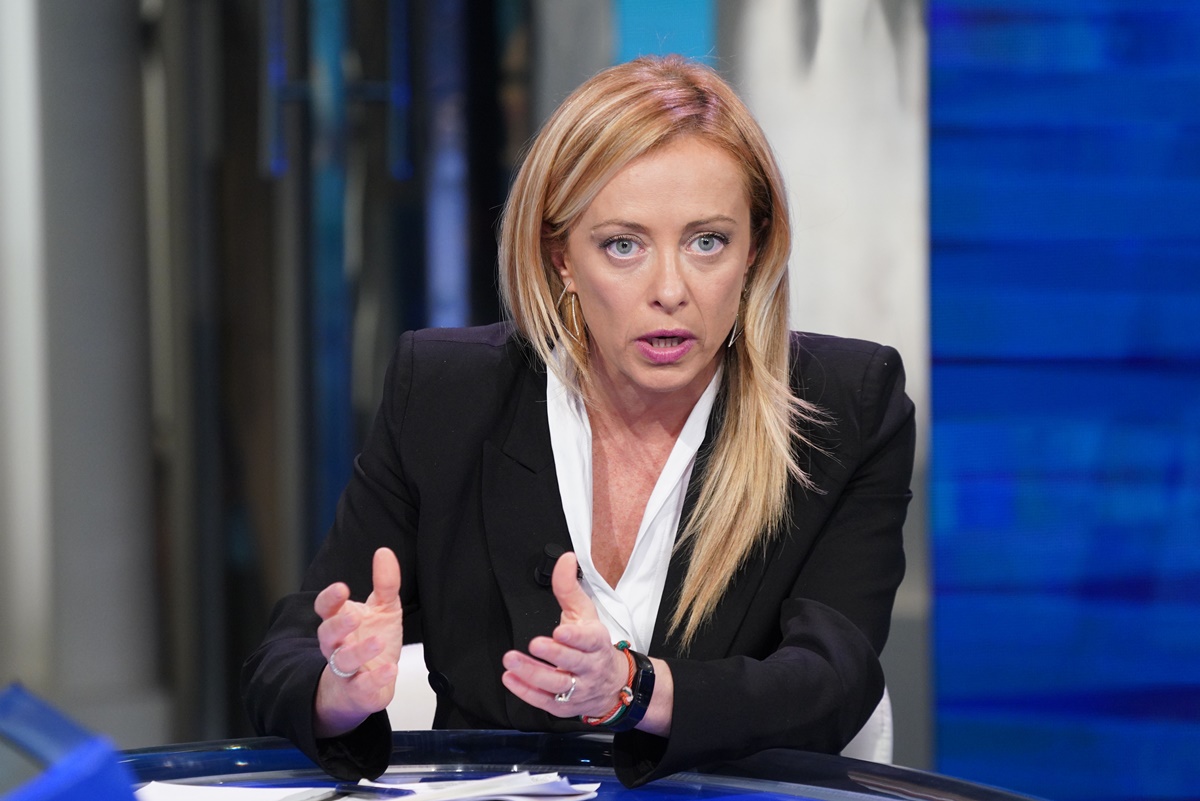Her party is steadily growing in the polls and it’s the only opposition left out of the new “national unity” government. She is mulling whether to attend the next CPAC in Florida, has become the leader of the European Conservatives and is a member of the Aspen Institute. All this might reduce the international blowback that refusing to enter Italy’s “national salvation” government might have caused her. We’re seeing a star-spangled, globalist pattern
Giorgia Meloni, the leader of the right-wing Brothers if Italy party, is on a star-spangled roll. Rumours obtained by Formiche.net say she might participate, either online or in person, to the next Conservative political Action Conference (CPAC) in Orlando, Florida, although her name isn’t on the guest list yet.
The CPAC would be the first main public event of the American Republican Party since the loss of former President Donald Trump to his Democratic rival Joe Biden. It would also be Ms Meloni’s third time attending, as she participated in 2019 and 2020 (and took part in a former edition of the National Prayer Breakfast, a key religious meeting attended by President Biden just a few days ago).
Big Republican names are scheduled to take part, including former Secretary of State Mike Pompeo, former Trump spokesperson Sarah Huckabee Sanders, and a slate of GOP “hawks” such as Senators Ted Cruz and Josh Hawley.
If Ms Meloni does participate, this latest development is yet another step on the American ladder she has been building for some time. A few weeks ago, she became a member of the Aspen Institute, the powerful and influential American think tank led by the political veteran and academic Giulio Tremonti. The halls of Aspen’s Roman division are crossed by all sorts of heavyweight thinkers and leaders, including Mr Biden during his tenure as Barack Obama‘s Vice-President.
For a party with a strong Eurosceptic, at times anti-Atlanticist and anti-American identity, Ms Meloni’s actions make little sense. They are, however, part of a wider restyling. Much like Matteo Salvini, the boisterous leader of the right-wing League, she has been undergoing a European, Atlanticist realignment – although his was quite sudden, and hers has been years in the making.
In September 2020, she became chairwoman of the European Conservatives and Reformist party, the 10th biggest European political family. She explained this by distancing herself from her former flat-out Euroscepticism and embracing the idea that she could best defend the Italian’s interests from within the European institutions.
Now her position is even more prominent, since she opted out of Italy’s new “national unity” government under Mario Draghi. Today, Brothers of Italy is the only party at the opposition, which makes Ms Meloni the sole Italian leader to reject the creation of what she has called a “hodgepodge” government.
Her aura of coherence joined with her firm conservative stances (which her right-wing colleagues had to dilute to enter the government) are paying off in the polls. Brothers of Italy garnered roughly 4% of votes in 2018, but the most recent polls place the party above 16%.
Mr Salvini, who is the leader of the centre-right coalition which also encompassed Ms Meloni and the more centrist Silvio Berlusconi, is also seeking to lose the international stigma associated with being a far-right, anti-institutional leader. His “moderate” conversion was done at the cost of contradictions and ideological somersaults, at the expense of credibility and hard-liner votes.
Matter of fact, the League leader has been bleeding votes in Ms Meloni’s direction. She is walking a fine line between keeping true to her party’s right-wing ideologies and enhancing them with the international alliances and support that are necessary to become a truly palatable (and effective) global leader.
The bigger picture emerging is that of an internationally savvy politician, one who has understood the limits of extreme nationalism and anti-establishment positions and who is weaving a global web of influence.
Ms Meloni’s strengthening American ties show that she pictures herself as part of the global congress of institutional conservatives, and might also dampen the “anti-institutional” blowback that rejecting the Draghi government might have brought onto her. Her entrance in the Aspen Institute signals that she has dropped the anti-establishment, anti-“powers-that-be” populist rhetoric, and mark her as a trustworthy, well-connected thinking head.
The League’s recent twists and turns are also playing in her favour, as she is now the only non-governmental conservative leader to bet on. Who knows – there is a chance that the next head of the new and improved Italian right will be none else than Ms Meloni. And if that happens, she will probably have the American right at her side.








